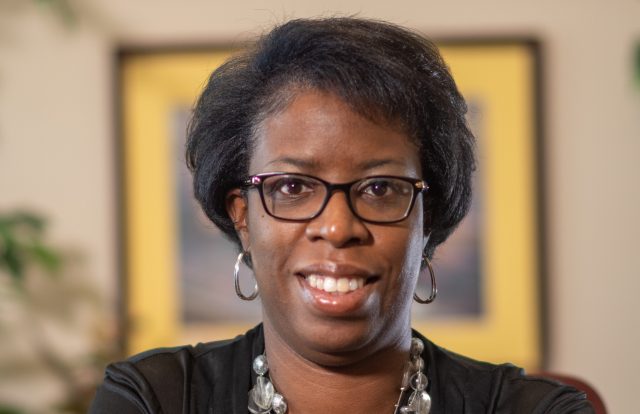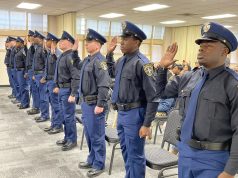By Keisa Sharpe-Jefferson
The Birmingham Times
The nation’s first ever Historically Black Community Colleges (HBCC’s) conference will be held February 8-9 in Mobile and hosted by Alabama Possible, a Birmingham non-profit which last year celebrated its 30-year anniversary.
The non-profit works to eradicate poverty but is also intentional about collaborations and has become “more focused about our advocacy efforts” particularly for those whose voices have been ignored, said Chandra Scott, executive director since 2020.
Alabama has eight HBCC’s – more than any other state.
These are important because some students cannot attend the traditional four-year college and “have been neglected and ignored. So, I have been calling that out at the national level and a local level,” said Scott, who is based in Mobile and timing the conference during Mardis Gras in the city and wants to give people a “learning experience and a fun experience.”
Removing Barriers
Alabama Possible was founded in 1993 and “the mission is to remove barriers to prosperity. We do that through education, advocacy and collaboration,” said Scott. “The focus of our work is to get students and adult learners access to success through a postsecondary education pathway.”
One example she provides is her work concerning FAFSA, or the Free Application for Federal Student Aid. The application process opened January 1.
Scott calls FAFSA the gateway to free aid such as scholarships, work study programs and Pell Grants and said she took on advocating for changes in the FAFSA policy in her first week at Alabama Possible in 2020. Those changes were passed the following year in 2021 by the Alabama State Department of Education board.
“FAFSA is a very long, in-depth application to gathering student information, parent information, tax information and assets,” she said.
Many potential applicants, according to Scott, were turned off from even making application for free student aid through that process.
Scott and her team at Alabama Possible as well as partners that included Governor Kay Ivey, the Alabama Commission on Higher Education and the Alabama State Department of Education recognized the completion rates were low and people just would not participate in filling out a FAFSA form.
They also learned that the applications were confusing to many. Scott and her partners worked to decrease the number of questions on the application.
“Unfortunately, because it’s so long, people were missing the opportunity to take advantage of funding that’s available for them and that would afford them the opportunity to train themselves through a two- or four-year degree,” she said.
And this year, many students and families will see a smaller version of that questionnaire. Said Scott, “instead of 100 questions, they will see only 50. That’s a huge barrier that’s been removed. Now, it’s been simplified so students and families can take advantage of that.”
Alabama is now 11th in the nation in terms of completion rates and “that’s why we’re seeing nearly 60 percent of last year’s graduating seniors complete that FAFSA,” Scott said. “That would not have happened before…We locked arms with other organizations around the country who were hearing the exact same thing we were hearing.”
“And we took our voices to the federal level and shared our concerns about what we are hearing and so this is the first year that we’re seeing less questions.”
But even with successes, there are some hiccups.
“This year, the (FAFSA) application opened late. But I would always tell people, whenever there’s change, there’s always growing pains. And the good thing is, this will benefit students and we’re hoping more of them will complete this, so they won’t be turned off by the lengthy application,” said Scott.
A Journey of Faith
Scott, 48, a Selma native, has been married 19 years to her husband Loren and has a daughter, a 17-year-old senior (Leah) and a 10-year-old son (Logan), credits her faith with sustaining her on her professional and personal paths.
Her initial career of choice was to be a pharmacist while studying at Xavier University in New Orleans, Louisiana, but she eventually decided against it and developed a strong dislike for the coursework.
She went on to graduate and obtain her undergraduate degrees in chemistry and biology.
Instead of letting the change of plans discourage her, she used the skills she learned in college to lead her to her unique path.
“I took a path to understand what I was going to do, and I realized that I really enjoy the process of trying to determine the unknowns, because I’m a chemist at heart.”
That led to the nonprofit space with business startups, then morphed into her position at the Mobile Education Foundation as their Strategic Officer.
She learned her niche was “how to see what no one sees and asking the questions that no one will ask.”
That led to enrolling at Michigan State University to get training with a certification in Nonprofit Leadership and Management “to understand the ins and outs” of strategic planning, she said.
At Alabama Possible, Scott said she pulls on the experience of all her previous roles. And her work hasn’t gone unnoticed.
In 2021, she was appointed by Governor Ivey to serve on the CTE Course of Study Committee and the Alabama Postsecondary Mathematics Task Force in 2023.
“It’s really been an amazing journey in these last three years to see how this organization has expanded its area of focus from being an organization that focuses on post-secondary access and collaboration to now strengthening our advocacy subsets because it’s not just enough to get students in the door,” she said.
Scott added, “This is my third year in the role and sometimes I feel I’ve been there longer because we’ve been able to accomplish so much in such a short period of time.”
Updated at 9:45 a.m. on 1/26/2024 to correct spelling of names.




